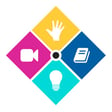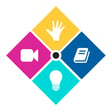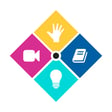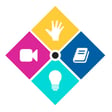Become a Creator today!Start creating today - Share your story with the world!
Start for free
00:00:00
00:00:01

Finding Research
Josh and Miranda talk about evidence-based practice and some tips for how they obtain their articles.
Transcript
Introduction to Hand Therapy Academy
00:00:05
josh MacDonald
Hi, I'm Josh McDonald.
00:00:06
Miranda Materi
And I'm random material and we are hand therapy Academy.
Importance and Challenges of Using Research in Therapy
00:00:10
josh MacDonald
We like to do everything that is at least research or evidence informed or evidence based, but sometimes it's a little hard to come across finding research, especially if you're not at a big hospital or institution. So let's talk a little bit about how we access research and how we use it so that you guys can do it too.
00:00:26
Miranda Materi
Right. And one thing I'd like to say is sometimes we think in the therapy world there should be research for stuff and there isn't, right? So then there's different levels of evidence. So one level is your expert opinion and your expert knowledge.
Accessing Research through Journals and Online
00:00:38
Miranda Materi
So utilizing that as well can be important. But when you're trying to find evidence, what are you doing and how are you finding it?
00:00:47
josh MacDonald
yeah Yeah, you're right. Sometimes we do a little article where you're like, oh, what's the best treatment for this? And there's not much out there. So sometimes the research just doesn't exist yet. um Honestly, I get most of my um research from Journal of Hand Therapy and Journal of Hand Surgery.
00:01:03
josh MacDonald
And for me, that comes because I'm a member of ASHT. And with that, I get access to Journal of Hand Therapy and I can pay a little bit more. I want to say it's like a hundred, maybe 150 bucks a year to have access to Journal of Hand Surgery. Those two cover, gosh, I would say 75 to 85% of what I do in the clinic. Some of the stuff we do, we look for research for off topics and things. And so that takes a little bit further offline, but those things get us the vast majority of the research I need.
00:01:31
Miranda Materi
That's interesting. Yeah, I do totally different. But finding the articles in a similar way. I always use Google Scholar.
00:01:37
josh MacDonald
Okay.
00:01:38
Miranda Materi
So and then for those of you who don't know, Google Scholar is all peer-reviewed journals. So it's a great way to search for stuff. Instead of searching for one particular journal, you could go in and search for a lot of journals.
00:01:49
Miranda Materi
And some of them may be
Cost and Professional Development in Research Access
00:01:51
Miranda Materi
open access. The only downside of that is some of them are not. So if you find an article you really want to read, you may have to buy it.
00:01:59
josh MacDonald
Yeah, yeah. And we are all, by nature, a little bit frugal. And as therapists, we find that therapists like to budget and save money. And so you see like, oh, why oh that that article costs a lot of money. I don't need that. Or I'll go find it somewhere else. or But people put a lot of effort into the journal articles that they write. And there's a lot of time involved. So I understand that there's a cost involved. But um if it's something you need, you know, it's part of our professional development, something we should probably be be willing to pay for.
00:02:27
Miranda Materi
Yeah, and that's what I tell, like my if someone from my team wants an article or something, like I have no problem paying for that. I'm just like so happy that they looked it up and and want to learn, right?
00:02:35
josh MacDonald
Yeah, yeah, absolutely, absolutely. um Another option for finding articles, especially those that aren't in journals you have access to because of memberships, which again, I highly recommend you be an ASHT member. You get Journal of Hand Therapy with that. There's tons of other great stuff that ASHT does, but Even if it's just the journal article access, tons of great database. You can search things super easily on there. But if you have level two students or level one students that come through that are part of a a university, they have access to their university library. So tap into them. Even if it's someone who is a former student, they may still have access. You keep those connections. So students have access to their university's library and can do interlibrary loans. You can find articles that maybe their school doesn't have. So that can be a real good way to get articles
Leveraging Community and University Connections for Research
00:03:19
josh MacDonald
also.
00:03:19
Miranda Materi
Right, especially if you have to get a lot of them. The other thing is if you do a lot of times if you're like a fieldwork educator or your adjunct faculty, like maybe like Josh and I sometimes will teach at the university in our town and you can just email the librarian and say, hey, like, you know, I've done some work, would you mind? it And a lot of times they'll be like, yeah, no problem, because they're getting access to them regardless.
00:03:42
josh MacDonald
Yeah. Yeah. And so either you're doing adjunct teaching or you, you know, create a friendship with a teacher and do some guest lecturing or as a, as an active, maybe you're taking capstone students or something that oftentimes gives you that access to their library where you don't have to go through students and kind of, you know, that, that extra staff is removed.
00:03:58
Miranda Materi
Right. And it's really just about building your community relationships too, right? You're like, okay, I'm going to teach for you. You're going to maybe find some articles for me and you know, we'll balance it out.
00:04:07
josh MacDonald
Yeah, yeah, yeah. And that's part of growing the community in general. It certainly serves your purposes in the moment, but it's good to have those connections so that you've got sounding boards for things that gives you just those interconnections are fantastic.
00:04:20
Miranda Materi
Right, and also you find some really great students, right? Like most of the people I think Josh and and I have hired throughout our career have been from students that we've gotten from the university.
00:04:28
josh MacDonald
Yeah. Yeah, yeah. And creating those connections, make sure you get quality students also.
Integrating Research into Daily Practice
00:04:34
josh MacDonald
If you have any say in the students that are assigned to you, creating a ah ah connection at that school, then that that clinical coordinator or maybe a a professor who knows a clinical coordinator can say, like, hey, that's a really good student for this person. Or yeah, we could send them there, but let's send them a better quality, a higher level student or a student who's interested in that field, something like that.
00:04:54
Miranda Materi
Or yeah, or someone that has at least an interest in it, right? Like if I don't know if we've ever gotten a student that's not interested interested in the hands and kind of just gets placed there, um those could be challenging. So making sure that that student skill set matches your you know clinical demands.
00:05:07
josh MacDonald
Yeah, yeah. So now we we talked about how maybe to get access to some of those articles, whether it's paid or whether it's through some connections. How do you feel like you find yourself using articles on a daily basis in a clinic setting?
00:05:21
Miranda Materi
It would usually be like a clinical question that comes up. like I'll be like, hu I haven't thought about that. And i wonder it's always like I wonder if there's any new publications on it. I feel like you know when you've been doing it for 20 years, you kind of know what evidence is out there. And and like Josh says, if you have access to journal articles, you're kind of staying up to date, right? like When you get that journal in the mail, you're flipping through it and saying, oh, that's something new. and and youre read I mean, usually I'm like, oh, that's interesting. I'm going to read it.
00:05:47
Miranda Materi
um But I think just making sure that you're staying up to date and kind of staying current in your practice can be really helpful. so um And for us, we have lots of students and lots of therapists that I think ask Josh and I a lot of questions. So it's like, well, you don't want to be the one that... I mean, sometimes I think it's okay to say, I don't know that or look it up. But I also think like sometimes I'll just be curious and say, oh, I wonder.
00:06:09
josh MacDonald
Yeah. Yeah. I do Google searches all day long about random topics and like, Hey, who was in the first Super Bowl and stupid, silly stuff like that. So I should probably be having the same kind of like, Hey, I wonder if that's still what people are doing for that splint for that diagnosis or what are they saying about.
Case Study: Research Application in MCP Arthroplasty
00:06:24
josh MacDonald
you know, manual therapy for this or whatever. So it's good to just have that general curiosity and let that lead your journal article search. And sometimes you don't need the full article, just the abstract is enough to give you the the ah perspective on answering your curiosities. um But yeah, looking into those things and being actively curious about our professions is important.
00:06:42
Miranda Materi
Yeah, I think a good example for me would be um one of my therapists was seeing an MCP arthroplasty. And it had been like probably two years since I'd seen one. And I was like, you know, I just wonder if anything has come out in the last two years that says we shouldn't be doing dynamic or we should put them in a static instead. um Because I don't know if someone was talking about or something. But anyways, I was like curious. So then I'm like, okay, I'm gonna look that up and see.
00:07:06
josh MacDonald
OK, OK, cool. So I'm curious, was the was recent research still showing dynamic or static?
00:07:12
Miranda Materi
Uh, no, it would mean there was like some, it wasn't like, there was no like really clear delineation, right?
00:07:17
josh MacDonald
OK.
00:07:17
Miranda Materi
Like it was just like, you could do this or you could do that. Um, so what we ended up doing was just asking the surgeon what he preferred and he wanted dynamics. So, but
00:07:26
josh MacDonald
Okay.
Staying Current with Research
00:07:27
josh MacDonald
Okay. But that's a great example of, you know, even if it's been only two years since I saw something, but going back and saying like, Hey, they're using relative motion for that. Now that's an interesting thing. Maybe I should ask the doctor if he's good with that and just kind of staying on the leading edge of things and not, not becoming the therapist that stuck in what they learned how to do 10 years ago.
00:07:28
Miranda Materi
yeah.
00:07:45
Miranda Materi
Yeah, definitely. That's boring, right?
00:07:46
josh MacDonald
Yeah. Yeah. Yeah. It's boring. and And if it's, we talk about surgeons sometimes, they're like, well, that's how they learned when they started 20, 30 years ago, but things have changed. We shouldn't get stuck in that rut either.
00:07:59
Miranda Materi
Yeah, it's interesting. I feel like if you're going to conferences, you kind of there's like this energy to learn
00:08:03
josh MacDonald
Mm hmm.
00:08:05
Miranda Materi
and kind of staying within your community, there's that energy. I think like sometimes it's easy to get or at least like some, you know, like it's easy to get complacent and kind of sedentary. Like you're like, I already know that this is my career, I'm done learning. um So I think it's important to like try to like invest in that energy for yourself and your career because it makes your career so much more enjoyable as well.
Value of Reference Materials and Final Encouragement
00:08:25
josh MacDonald
yeah yeah
00:08:26
Miranda Materi
And then one other thing that I was thinking about too that I see a lot is people will be selling their like new rehab of the handbooks or like they may have this great reference.
00:08:36
Miranda Materi
And I always think, and it's one thing if you're leaving hand therapy, but if you're like you have the books for studying for the CHT and then you go and sell it, I'm always like, Oh, don't do that. Right? Like you're going to like, even if I'm not doing clinical care, I'm looking stuff up in that book all the time.
00:08:49
josh MacDonald
Yeah, yeah. Yeah, yeah, absolutely, absolutely. Having those resources is something we should be checking regularly. ah You may not need the most updated edition, but yeah, if you're still treating, you need those resources for sure.
00:09:03
Miranda Materi
Yeah, I think I it's so in the you like, even though you I've read it a few times, right?
00:09:04
josh MacDonald
Yeah.
00:09:07
Miranda Materi
Like I've read different chapters a few times, there's stuff you don't remember.
00:09:11
josh MacDonald
Yeah, yeah. Or the stuff you missed the first time because you were scanning and skimming and now it's like, oh, wait, that's interesting. I didn't remember that last time.
00:09:18
Miranda Materi
Or you like learn it superficially, and then you learn it like a little bit, you know, more moderate, and then you're like, as you grow in your career, I think you learn it deeper, right? So every time you go back and read it, you're having a better understanding and a deeper understanding of the content.
00:09:26
josh MacDonald
Yeah.
00:09:31
josh MacDonald
Yeah, yeah, yeah. All right, so definitely try to include research as much as you can into your practice, into your professional curiosity. We talked about how to find some research. If you have any questions, definitely let us know. Know that we can't ever provide research articles to you. That's outside our our license. We don't have the copyright approval to do that. But always go look for articles if you can find them to help inform your practice.



